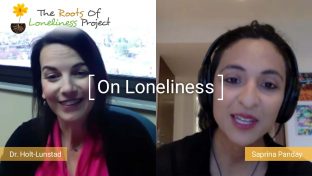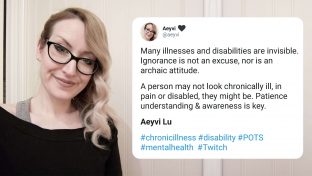Codependency Loneliness: How I Learned To Set Boundaries

While there are many causes of codependency, growing up in a dysfunctional, chaotic, or otherwise stressful environment is thought to be a contributing factor and it can lead to feelings of loneliness if not addressed.
- People with high levels of emotional intelligence may be more prone to forming codependent habits; when you’re so aware of how others feel, it can be easier in some cases to empathize with others to an unhealthy degree.
- It’s important to understand (and remember) that it’s not your job to “fix” everything for everyone.
Struggling with loneliness or having a mental health crisis?
- Suicide Prevention Lifeline: 1-800-273-TALK (8255); Deaf or hard of hearing dial 711 before the number or connect via online chat
Several months ago, my therapist mentioned that I displayed some codependent tendencies.
Initially surprised by that news, I didn’t know what to make of her startling assessment.
As I learned about what it really meant to be codependent, however, my relationships with others — and my own feelings — suddenly began to make more sense to me.
During my personal research into the topic, I discovered that there are generally two sides to a codependent relationship.
Person A provides Person B with an unhealthy amount of emotional support and comfort. Meanwhile, Person B doesn’t offer the same support in return, yet also feels in desperate need of Person A’s support to function.
In other cases, however, codependency can look a little different when more than two people are involved.
To illustrate this point, I’ll share an example of a former codependent habit from my own life.
In the past, no one in my social circle needed my emotional support during every hour of the day, yet I constantly felt obligated to take on everyone’s problems.
If I didn’t assume those burdens on their behalf, I felt guilty and anxious.
I felt like a bad person.
For adults in particular, studies show that codependency is often linked to feelings of anxiety, low self-esteem, stress, pathological loneliness, and depression. Those in marginalized communities — gay men and women, as well as queer people as a whole, people of color, disabled people, etc. — who are already at risk for feelings of loneliness may be especially vulnerable to codependent tendencies.
Only through therapy was I able to realize how lonely codependency was.
I held others to my own unreasonable standards, and when people didn’t meet those standards, I felt isolated, anxious, and upset.
I was so inclined to provide emotional support to others that I pushed aside my own needs.
Instead of feeling happy or enjoying positive connections with others, I found myself emotionally drained and struggling with loneliness.
How To Manage Codependent Tendencies And Feel Less Lonely
Based on my own experience, I can tell you that codependent loneliness isn’t something that you can get rid of overnight.
That said, I’ve found several ways to quell my unhealthy need for emotional involvement in others’ problems and to feel less emotionally isolated in the process.
Here are some of my most helpful tips for dealing with codependency loneliness:
- Recognize that you can’t (and shouldn’t) always help everyone — and that’s okay.
- Be aware of what you are giving in your relationships and what you are taking from your relationships, then adjust your actions accordingly.
Although it seems completely obvious in hindsight, I had to come to the realization that my way of solving problems doesn’t work for everyone else.
It was a revelation.
It is, as my therapist pointed out, a little narcissistic to think that I can fix everyone’s problems like magic.
In addition, people can’t grow and improve if they never have to face their own challenges because someone else has stepped in to do so.
I had to learn how to let others carry the weight of their burdens.
Looking at the other side of a codependent relationship for a moment, those who receive more support than they give should assess their own relationships, as well.
If you realize that you’ve been receiving advice, assistance, support, or love without reciprocating it, make an effort to ask about other people, listen to them, and offer your support in return.
- Allow yourself to set healthy boundaries when it comes to supporting others emotionally.
You can support someone without allowing their struggles to negatively impact you.
Reining in my codependent tendencies in order to avoid loneliness has meant setting boundaries for myself — and sometimes, for others.
Whenever a loved one was distressed in the past, I was immediately distressed in tandem — sometimes more than the person struggling.
These days, I try to view similar situations a little more objectively.
I carefully consider what I can do to help another person without being consumed by their problems.
Ultimately, I’ve found that it takes time to reduce an inclination toward codependency, but it can be done.
Closing Thoughts
As I’ve become less codependent myself, I’ve also dealt with fewer instances of loneliness and I’ve become less burdened by the struggles of others.
To my relief, no one has resented me for setting such boundaries.
While I still have moments when I want to reach out to fix everyone’s problems, I’ve also found a steady sense of peace by stepping back and letting go — and you can, too.
Editor’s Note: This article is part of The Roots Of Loneliness Project, the first-of-its-kind resource that comprehensively explores the phenomenon of loneliness and over 100 types we might experience during our lives.
Find Help Now
If you’re struggling with codependency loneliness, we’ve put together resources to meet you wherever you are — whether you want someone to talk to right now, or are looking for longer-term ways to help ease your loneliness.
- Suicide Prevention Lifeline: 1-800-273-TALK (8255); Deaf or hard of hearing dial 711 before the number or connect via online chat
- Resources & Emotional Support For Loneliness
- Volunteer & Pet Adoption Opportunities






